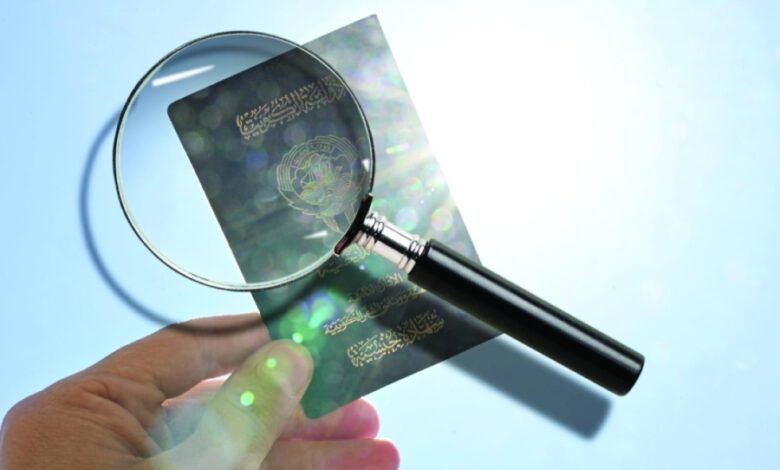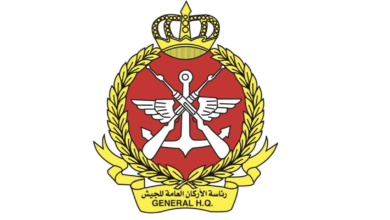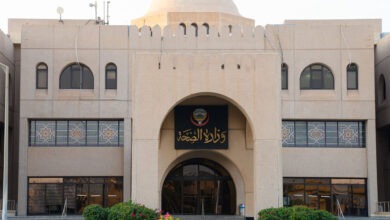Layers of deception — How Kuwait’s citizenship investigations unraveled generations of forgery

Kuwait’s Supreme Committee for Citizenship Investigation, chaired by First Deputy Prime Minister and Minister of Interior Sheikh Fahad Al-Youssef is tackling one of the most complex and far-reaching cases of dual nationality and forgery in the country’s history.
At the heart of the scandal lies a web of intertwined identities, falsified records, and entire family trees built on deception — cases so intricate that investigators have likened them to the Russian “Matryoshka” doll, where one forgery conceals another.
One of the largest files under review involves a Kuwaiti citizen whose record contained 41 registered individuals, even though he had only 14 biological children.
The DNA testing confirmed the lineage of the 14 siblings, while the other 27 names remain under investigation. Some of these individuals had already been proven unrelated, with paternity categorically denied through genetic evidence.
Investigators found that the file had ballooned into 204 fraudulent affiliations. Even more astonishing, the supposed father of this case—born in the 1940s—was only 12 years younger than his own listed “parent,” a detail that highlighted the depth of manipulation in official records.
The man’s true Gulf identity was later uncovered, along with evidence that some of his alleged “children” had entirely different nationalities.
A key figure in this saga was an individual named Ayed, who was inserted into the Kuwaiti citizenship registry in 1993 through a court ruling, despite already being 27 years old.
Investigators later discovered that Ayed possessed Gulf nationality under a completely different name. DNA comparisons proved that he was not biologically related to the individuals he claimed as siblings, unraveling yet another layer of the fraud.
The second major file under investigation contained about 100 individuals, including 35 alleged children. DNA tests once again exposed the forgeries, proving that several of these individuals were not related to the original family.
Investigators also uncovered that one person from this group had added three Syrians to his file. He was arrested in 2018, and their nationalities were revoked soon after.
Altogether, just two files linked to this scheme accounted for more than 300 fraudulent entries, leading to the revocation of citizenships and affiliations. Authorities stress that many more files remain under scrutiny, and the investigation could take years to fully unravel.
Another case involved an Iraqi who fraudulently obtained Kuwaiti nationality in the 1970s. At the time, investigators lacked the tools—such as DNA testing—to disprove his claim. Decades later, a review of his file revealed that his supposed father had never listed him among his children.
DNA tests comparing his descendants with the family of the deceased Kuwaiti man confirmed that there was no blood relation. The forgery had spawned around 35 individuals across two generations, all of whom have now lost their Kuwaiti nationality.
Investigations also revealed the case of two Syrian brothers who had each claimed to descend from different Kuwaiti citizens. Their deception spanned decades, supported by fabricated certificates and witness statements.
DNA testing eventually exposed their true identity, linking them to a Syrian sister already residing in Kuwait. This case alone involved 52 people, including children and grandchildren, whose documents were tied to false claims.
Even the supporting documents used in these cases were riddled with fraud. In one instance, investigators discovered that a forged marriage contract was backed by fraudulent witnesses—individuals who themselves had previously lost their Kuwaiti nationality for involvement in similar schemes.
According to informed sources, the investigative process has relied on a combination of hotline tips, extensive field inquiries, and, most decisively, DNA testing. These methods have exposed generations of deception, revealing how fraudulent claims to citizenship had been passed down within families for decades.
The Supreme Committee for Citizenship Investigation has already decided to revoke Kuwaiti nationality in several of these cases. The decisions will soon be presented to the Council of Ministers, covering grounds such as dual nationality, fraud, false statements, and the higher interests of the state.
Officials emphasize that while the investigations are painstakingly complex, they serve as a powerful reminder: no matter how long it takes, forgery will eventually be uncovered, and Kuwait’s national identity will be protected from those who attempt to exploit it.
Follow The Times Kuwait on
X, Instagram and Facebook for the latest news updates












